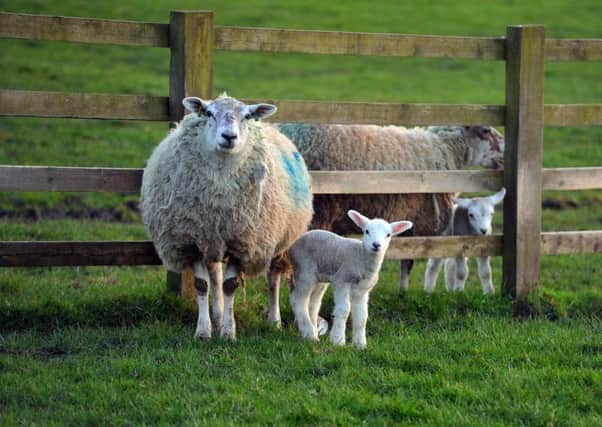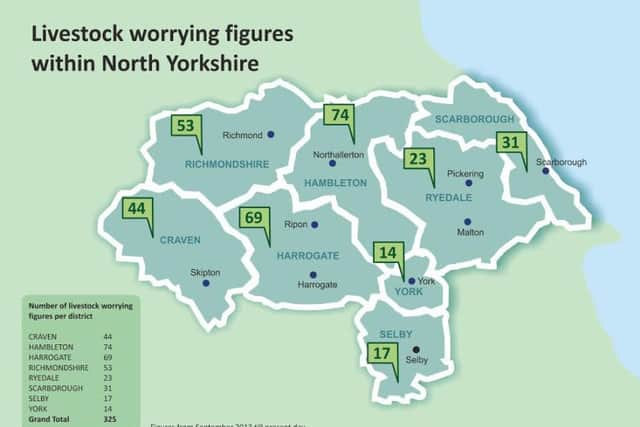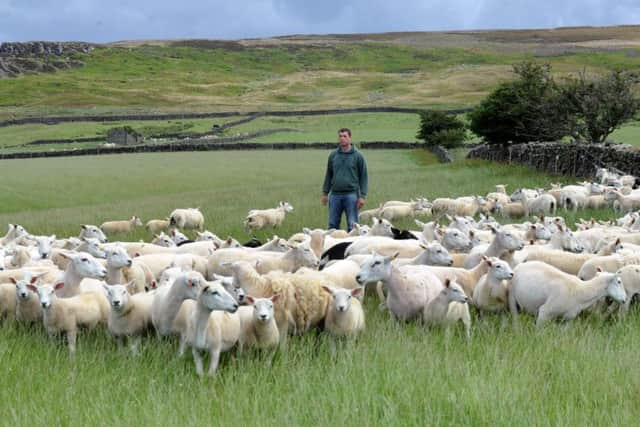Police evidence bid to press for tougher livestock attack laws


An estimated 15,000 sheep alone were killed outright by dogs in 2016 and thousands more were injured - some proving fatally so - while many others suffered aborted lambs, according to Sheepwatch UK.
Now, in a move being backed by the farming industry, police in North Yorkshire, where there have been 325 reported dogs attacks on livestock since September 2013, have joined with other police forces in England and Wales to gather evidence that campaigners hope will lead to tougher legislation to punish irresponsible dog owners.
Advertisement
Hide AdAdvertisement
Hide AdPolice complain that current laws make it difficult for officers to deal with the issue effectively, while maximum fines of £1,000 are often disproportionate to the cost of attacks to farmers, which can amount to many thousands of pounds.


To press for tougher and more effective legislation, North Yorkshire Police, North Wales Police, Sussex Police, Hertfordshire Police and Devon and Cornwall Police are working with Sheepwatch UK and the Animal Health and Welfare Board for England to gather more information about dog attacks on livestock. The forces will look at how livestock attacks are reported, recorded and handled, to assess whether the law needs to be revised and an initial report is due back in September.
Under dated laws still in effect, camelids such as llamas and alpacas, and other livestock types such as deer, are not technically designated as livestock. And while police can seize a dog that they witness attacking a sheep, officers do not have the power to seize a dog in connection with an attack otherwise.


Advertisement
Hide AdAdvertisement
Hide AdChief Constable Dave Jones of North Yorkshire Police said: “We believe that there may be scope for the law to be tightened up, but we need hard evidence to confirm it. Through the initiative we have launched this week, five rural forces will start to gather more details about dog attacks on livestock so that, if the evidence supports it, we can present a clear case to support a change in the law.”
The initiative was launched in Westminster yesterday, where representatives from North Yorkshire Police and farming and livestock associations discussed livestock worrying and dog control with MPs from the All Party Parliamentary Group for Animal Welfare.
North Yorkshire farmer Richard Findlay, chairman of the regional livestock board at the National Farmers’ Union, said worrying was a problem that was getting worse.
He said: “Livestock worrying is a serious and heart-breaking problem that livestock farmers have to deal with every year. With lambing season well underway, it’s an especially worrying time of year. It is clear that the police have limited powers to deal with the problem and as a result I am concerned about the extent to which cases are under reported.


Advertisement
Hide AdAdvertisement
Hide Ad“We really need to get the message across to dog owners that they must take responsibility for their dogs at all times. With the law now requiring dogs to be chipped, it should be easier to identify the owners of dogs caught worrying livestock, so it is important that the police have the power to act decisively.”